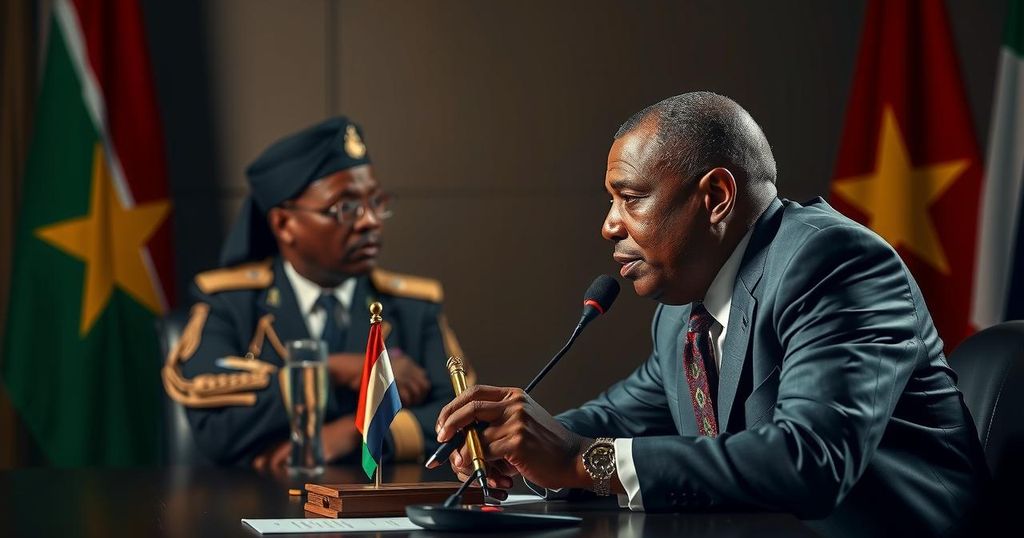South Sudan’s President Affirms Commitment to Tumaini Peace Talks

South Sudan’s President Salva Kiir has reaffirmed his commitment to the Tumaini peace negotiations, clarifying that they aim to incorporate concerns of hold-out groups into the existing Revitalized Peace Agreement. Despite extending the transitional period and delaying elections, leaders are urged to create a realistic work plan for peace implementation amid significant humanitarian challenges.
President Salva Kiir Mayardit of South Sudan reaffirmed his commitment to the Tumaini peace negotiations with hold-out groups, which are taking place in Nairobi, Kenya. He clarified that these discussions are not intended to forge a new agreement or alter the existing Revitalized Peace Agreement. Instead, the aim is to consider the concerns of the hold-out groups and incorporate them into the current agreement to enhance inclusivity and avoid further conflict.
During the opening of the 8th annual Governor’s Forum in Juba, President Kiir emphasized that any attempts to replace the existing peace deal would undermine the principles of inclusivity that are crucial for lasting peace. He announced an adjustment in the composition of the government delegation to hasten the negotiation process. Additionally, he pointed to the necessity of focusing on the scheduled elections set for December 2026 as part of the roadmap towards stability.
Nicholas Haysom, the Special Representative of the Secretary-General at the United Nations Mission in South Sudan, described the extension of the transitional period for two additional years and the postponement of the elections as regrettable but unavoidable given the lack of progress on vital aspects of the peace agreement. He highlighted the need for a comprehensive and practical work plan for the upcoming two years, urging all parties to act with urgency as they fulfill their commitments to the South Sudanese populace.
In light of the current human and humanitarian challenges in South Sudan, which include nine million people in need of assistance and rampant food insecurity, Haysom underscored the importance of delivering essential services and establishing an accountable financial management system. The forum presented an essential platform for discussions among leaders, aiming to strengthen collaboration on implementing the peace agreement amid ongoing national challenges.
Deputy Special Representative Anita Kiki Gbeho called for uninhibited humanitarian access, citing the various obstructions faced by aid organizations, which include physical barriers and violence against personnel. She insisted that proactive measures must be taken at all levels of governance to enhance the effectiveness of humanitarian interventions needed to address the pressing crises facing South Sudan.
The Tumaini negotiations arise from South Sudan’s long history of conflict and the necessity for a cohesive peace agreement post-independence. Following the 2018 Revitalized Peace Agreement, various armed factions continued to oppose the government, necessitating further lines of dialogue aimed at inclusivity and reconciliation. With significant humanitarian challenges, including millions facing food insecurity and a large number of displaced persons due to regional violence, the government and international community are keen to facilitate negotiations that can stabilize the nation and foster long-term peace.
In summary, President Salva Kiir’s commitment to the Tumaini talks signifies a pivotal step towards consolidating peace efforts in South Sudan. The focus on inclusive dialogue, adherence to existing agreements, and the emphasis on the upcoming elections underscore the government’s desire for stability. The international community, represented by the United Nations, continues to advocate for urgent humanitarian access and effective governance to address the myriad challenges confronting the country.
Original Source: www.socialnews.xyz







